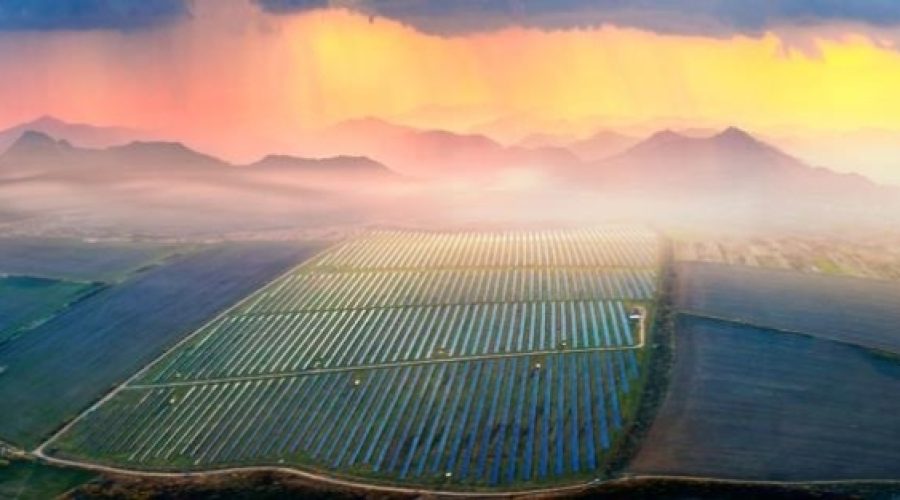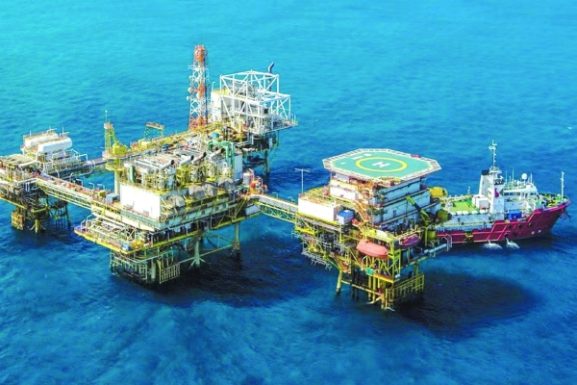World Breaks Renewable Energy Records: What This Means for Your Investment Opportunities and Business Growth
A new report released today by the International Renewable Energy Agency (IRENA), the COP30 Brazilian Presidency, and the Global Renewables Alliance (GRA) reveals that, despite record progress in 2024, the world is falling behind on its renewable energy and efficiency targets. The announcement was made during a pre-COP30 high-level event in Brasília.
In 2024, global renewable energy capacity additions hit an unprecedented 582 GW. However, this progress is insufficient to meet the COP28 UAE Consensus goal of tripling renewable capacity to 11.2 TW by 2030. Achieving this target now requires an annual addition of 1,122 GW from 2025 onwards, demanding a growth rate of 16.6% per year throughout the decade, according to IRENA’s second official tracking report on these landmark energy goals.
The report, titled Delivering on the UAE Consensus: Tracking progress toward tripling renewable energy capacity and doubling energy efficiency by 2030, also highlights significant concerns regarding energy efficiency. Global energy intensity improved by only 1% in 2024, far below the 4% annual improvement needed to stay on track with the UAE Consensus and limit global warming to 1.5°C.
To address these shortfalls, the report calls for urgent actions to:
- Integrate renewable energy targets into national climate plans (NDC 3.0) ahead of COP30 in Belém.
- Double collective ambition in NDCs to align with the global renewables target.
- Increase renewable energy investments to at least USD 1.4 trillion annually from 2025 to 2030, more than doubling the USD 624 billion invested in 2024.
United Nations Secretary-General António Guterres emphasized the urgency: “The clean energy revolution is unstoppable. Renewables are deployed faster and cheaper than fossil fuels – driving growth, jobs, and affordable power. But the window to keep the 1.5°C limit within reach is rapidly closing. We must step up, scale up and speed up the just energy transition – for everyone, everywhere.”
IRENA Director-General Francesco La Camera noted, “The world has broken renewable capacity records, but records alone will not keep 1.5°C alive. Renewables are not just the most cost-effective climate solution; they are the biggest economic opportunity of our time. This report shows the path: accelerate deployment, modernize grids, scale clean-tech, and strengthen supply chains. Every dollar invested brings growth, jobs, and energy security.”
Ben Backwell, Chair of the Global Renewables Alliance, stated: “The private sector is driving the energy transition, providing three-quarters of global clean energy investment. Our industries, led by wind, solar and hydropower, are already delivering growth, jobs and security. What we need now are long-term government plans that match national ambitions; pipelines that deliver projects; and enabling actions on grids and storage.”
The report stresses that major advanced and emerging economies must lead the way. G20 countries are expected to comprise over 80% of global renewable capacity by 2030, while G7 nations are projected to raise their share to about 20% within this decade.
In addition, these economies must fulfill climate finance commitments by meeting the USD 300 billion annual floor of the new collective quantified goal (NCQG) and scaling up towards the aspirational USD 1.3 trillion agreed at COP29 in Azerbaijan.
The report also underscores the urgent need for investment in electricity grids, supply chains, and clean technology manufacturing for solar, wind, batteries, and hydrogen.
Although renewable energy investments grew by 7% in 2024, disbursements remain insufficient to build strong project pipelines and accelerate development. The report calls for fair, transparent trade practices for critical renewable technologies and international cooperation to protect trade routes for essential materials and components.
Strategic investment in modernizing and expanding electricity grids is vital for integrating new capacity and enhancing energy security. An estimated USD 670 billion per year must be invested in grids through 2030, alongside additional funding to expand energy storage, facilitate renewable integration, and maintain grid stability.
This comprehensive report highlights both the progress made and the significant acceleration needed to meet ambitious global renewable energy and efficiency goals.
Special Analysis by Omanet | Navigate Oman’s Market
The global renewable energy surge presents a critical opportunity for Oman to accelerate its clean energy investments and modernize its grid infrastructure, aligning with the COP30 goals. Smart investors and entrepreneurs should focus on scaling renewable projects, enhancing energy efficiency technologies, and developing supply chains for clean tech to capitalize on the expanding market demands. However, the urgent need for substantial annual investment highlights a risk for those unprepared to adapt quickly in this rapidly evolving energy landscape.



